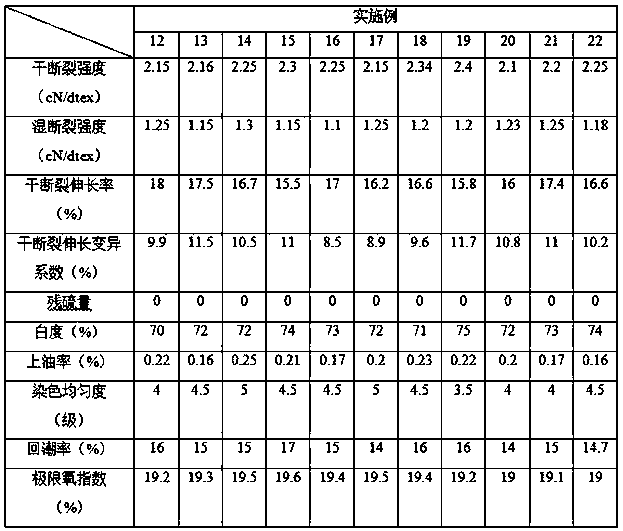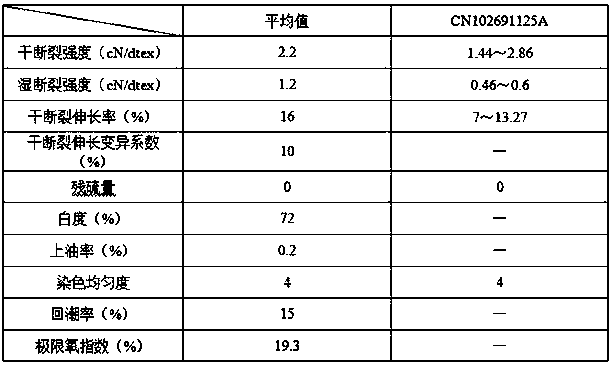A kind of regenerated cellulose fiber staple
A technology of regenerated cellulose and cellulose, which is applied in the field of regenerated cellulose fiber short filaments and cellulose urethane fiber short filaments. increase and other problems, to achieve the effect of good product performance, good spinnability, and production cost
- Summary
- Abstract
- Description
- Claims
- Application Information
AI Technical Summary
Problems solved by technology
Method used
Image
Examples
Embodiment 1
[0029] This embodiment proposes a kind of regenerated cellulose fiber staple, which is obtained by spinning the spinning stock solution obtained after dissolving cellulose amino acid methyl ester, and meets the following indicators:
[0030] Dry breaking strength 2.1cN / dtex, wet breaking strength 1.0cN / dtex,
[0031] The dry elongation at break is 12%, and the coefficient of variation of dry elongation at break is 8%.
[0032] The residual sulfur content is 0.
Embodiment 2
[0034] The short filaments of regenerated cellulose fibers involved in this embodiment are prepared by spinning the spinning dope obtained after dissolving cellulose amino acid methyl ester, and satisfy the following indicators:
[0035] Dry breaking strength 2.4cN / dtex, wet breaking strength 1.3cN / dtex,
[0036] The dry elongation at break is 18%, and the coefficient of variation of dry elongation at break is 12%.
[0037] The residual sulfur content is 0.
Embodiment 3
[0039] In this example, on the basis of Example 1, other index parameters of the regenerated cellulose short filaments are optimized, as follows: the whiteness of the regenerated cellulose short filaments is 70%, and the oiling rate is 0.15%.
PUM
| Property | Measurement | Unit |
|---|---|---|
| elongation at break | aaaaa | aaaaa |
| whiteness | aaaaa | aaaaa |
| limiting oxygen index | aaaaa | aaaaa |
Abstract
Description
Claims
Application Information
 Login to View More
Login to View More - R&D
- Intellectual Property
- Life Sciences
- Materials
- Tech Scout
- Unparalleled Data Quality
- Higher Quality Content
- 60% Fewer Hallucinations
Browse by: Latest US Patents, China's latest patents, Technical Efficacy Thesaurus, Application Domain, Technology Topic, Popular Technical Reports.
© 2025 PatSnap. All rights reserved.Legal|Privacy policy|Modern Slavery Act Transparency Statement|Sitemap|About US| Contact US: help@patsnap.com



